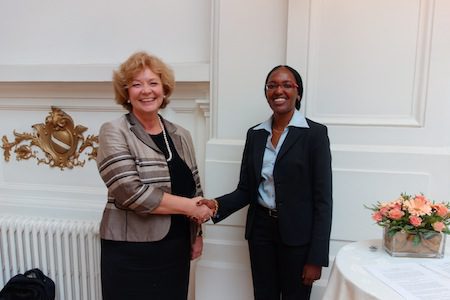Studying, reflecting and improving elections around the world- Practical Approaches to Improve Electoral Processes


November 29, 2013
Community of Democracies and International IDEA have signed an agreement to cooperate in a project to help democracies in making their elections more inclusive, transparent and fair.
Election days are the biggest holiday of democratic countries. Following several weeks of open debate and campaigning and wide media coverage, the people go to the ballots to exercise their democratic right to choose their representatives. At the same time, elections also pose a big test for democratic performance: social and political marginaliztion of certain groups in society might prevent elections from being a true representation of the population's will; irregularities in finances of political parties make place for corruption, and a dissatisfactory performance of election management bodies can hurt the fairness of the process, distort the elections' results and question their legitimacy.
What challenges do different countries face on their way to the ballots, and how do they make sure all electoral processes function well? Answering these questions might set an example to the world, and guide countries what to do and not to do in order to improve their electoral process.
This is exactly what the Community of Democracies and International IDEA (Institute for Democracy and Electoral Assistance) had in mind when they decided to launch together their new project: Practical Approaches to Improve Electoral Processes. Supported by the government of the Republic of Korea, this innovative project consists of a comparative study of eight countries and the ways in which they run their electoral processes.
Australia, Indonesia, Mexico, Nigeria, Poland, Republic of Korea, Spain and Tunisia were chosen as the study cases for the project, which will focus on three crucial topics: electoral processes, equal participation of women and marginalized groups, and financing of political parties. The fruit of the work will be a publication, presenting initiatives to improve the electoral process, highlighting lessons learned and sharing best practices.
Democracy is a process of learning, and democratic regimes are constantly making new steps in their journey to improve their electoral processes. "Practical Approaches" is a strong contribution to this journey. Governments looking to develop their electoral mechanisms, international organizations observing elections and evaluating their quality, and civil society organizations encouraging authorities to improve electoral processes- all can make good use of this guide.



